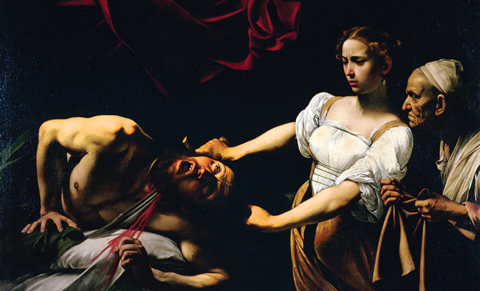For much of the 20th century, Michelangelo held sway as the darling of the academic art world. No artist from the early modern era had been the subject of more books, catalogues and scholarly papers than the man who painted the Sistine Chapel and sculpted the iconic David.
But according to research by Philip Sohm, a U of T art history professor, Michelangelo was knocked from his perch atop the Italian art charts in the 1980s. The challenger: the rebellious genius Caravaggio.
Caravaggio, a realist painter who lived at the end of the 16th century, is known for his intensely dramatic works featuring violent struggles, torture and death. In life, he was a notorious brawler who once killed a man, possibly by accident, and spent a good amount of time fleeing authorities.
Sohm speculates that Caravaggio’s growing popularity reflects a shift in contemporary views about religion, diversity and authority. “Caravaggio embraced humanity in all of its facets, including its more degraded ones,” says Sohm. “He rebelled against dogma and received wisdom.”
Michelangelo’s relative decline is more difficult to explain. Sohm suggests that scholars may simply have exhausted topics about the artist, who was once called “divine” and was equally accomplished in painting, sculpture and architecture. “Any art historian who wants to work on Michelangelo faces a wall of books and articles that must be read before advancing one’s own views,” he says. “The effort is formidable.”
In a secular era in which feminism has challenged gender biases, and environmental concerns are ascendant, Michelangelo – who painted for the pope and rejected nature – may simply have fallen out of favour. “After 1968, more people began to question ideas of progress, authority and institutionalized religions,” says Sohm. “Michelangelo no longer seems as divine as he once did.”






